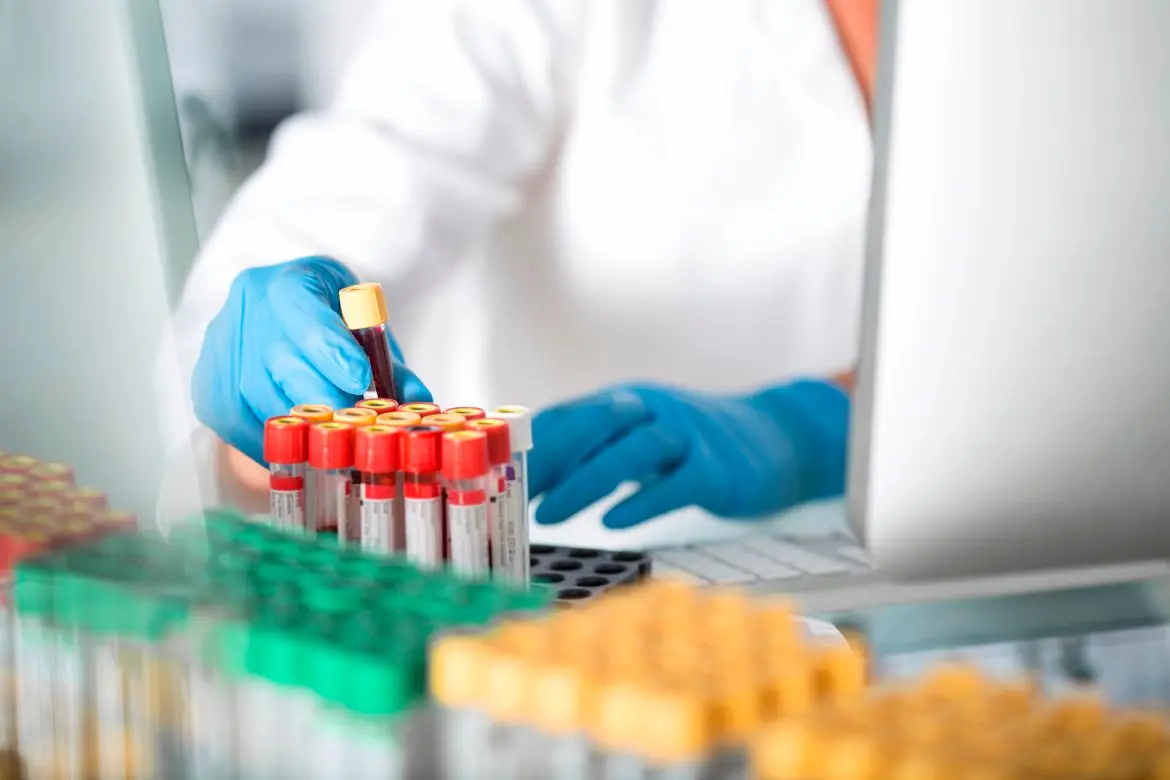Dr Tan Min-Han
Medical Oncologist


Source: Getty Images
Medical Oncologist
A simple blood test is revolutionising how cancer is detected during your annual health screening.
Dr Tan Min-Han, a medical oncologist partnering with Mount Elizabeth Hospitals, said: “There are about 100 different types of cancers and 50 of them make up over 95% of all cancer cases. However, many of these 50 cancers such as lung cancer, liver cancer and pancreatic cancer, are not routinely screened for.”
With cancer rates rising to 10 million new cases a year in Asia, there is a glaring need to better detect cancers early while making such testing easily available to the masses.
Determined to address this challenge, Dr Tan and his company, Lucence, developed a Multi-Cancer Early Detection Screen (MCED), also known as LucenceINSIGHT. Now available at Parkway Shenton clinics and Parkway MediCentre, the MCED may help to turn the tide in the perennial war on cancer.
Also known as a "liquid biopsy", the test is administered in the same way as a standard blood test – blood is drawn from the patient and sent off to a laboratory for analysis.
Patients receive the test results after 12 – 18 days, and they will find out with approximately 99% level of accuracy whether there are any cancer signals from up to 50 cancer types.
Familiar cancer marker tests such as CA19-9 or CA125 in health screening packages look for the presence of proteins, which are made in higher amounts by cancer cells. On the other hand, MCED studies DNA signals from DNA fragments within the blood stream.
Cancer cells shed altered DNA fragments into the blood, known as circulating tumour DNA (ctDNA).
MCED uses proprietary technology to amplify and detect these ctDNA cancer signals in the bloodstream, and machine learning to identify the origin of the ctDNA.
Thus, MCED can detect signals of cancers such as breast, gastrointestinal stromal tumour (GIST), lung (small cell lung cancer, non-small cell lung cancer, lung neuroendocrine tumour), bile duct, colorectal, nasopharyngeal, liver, pancreatic, cervical, and prostate cancer.
MCED is a screening test and any positive signal requires confirmation by further investigations and diagnostic testing.
This non-invasive test is recommended for individuals aged 40 and above, as well as those with elevated cancer risks due to family history or lifestyle factors.
It is important to note that traditional cancer screening tests, such as colonoscopies and mammograms are still important, and MCED will complement these screenings for improved and additional early cancer detection.
For example, patients aged over 50 without any risk factors are recommended to undergo a colonoscopy every 10 years. The MCED can be taken within those 10 years to provide peace of mind.
“The aim is not to replace tools that already work but to fill in the gaps where we currently aren't looking,” Dr Tan said. When used together, cancer marker tests and the MCED can help detect cancer earlier.
According to Cancer Research UK, cancer survival rates can increase by up to 3 times if the cancer is detected early.
With its convenience of just a blood draw, MCED can be beneficial for those who are uncomfortable to undergo the process of traditional cancer screenings, such as colonoscopies and mammograms.
“Over 6 in 10 Singaporean women choose not to go for their mammograms,” said Dr Tan. “And we also know that for colonoscopy, the compliance (to go for regular screening) is also not very high.”
“Tests such as the MCED make cancer screening accessible to people who may find traditional screening uncomfortable or inconvenient. It gives people an additional option.”
As with many medical tests, there is a small possibility of a false positive result – where the test suggests the presence of cancer cells despite the person being cancer-free – in traditional cancer tumour marker tests.
To ensure the most accurate diagnosis, doctors may recommend additional testing or seek a second opinion to confirm the initial findings. This multi-step process helps provide clarity and peace of mind for patients undergoing cancer screening.
Compared to cancer tumour marker tests, MCED offers a more precise assessment with less false positives as it focuses on genetic changes directly linked to cancer.
In clinical trials so far, the MCED technology has a specificity of 99%, meaning it correctly identifies 99% of patients who do not have cancer. In comparison, cancer tumour marker tests can have a false positive rate of 40% when used over 5 years.
“Mammograms have a specificity of 92%,” said Dr Tan. “That means that 8 in 100 women receive a false positive result.”
The availability of the MCED marks a significant advancement in the way cancer screening is done. It promises a future where such screenings are as straightforward and routine as a standard blood test.
Dr Tan shared: “Cancer can be frightening but at the same time, because it is curable if diagnosed at an earlier stage, I think there is good reason for hope."
On his views of the importance of early detection, Dr Tan said, “It's going to be much easier and cheaper to manage a cancer that's 2cm in size versus a cancer that's 5cm size.”
In Singapore, cancer remains a leading cause of death. According to the Singapore Cancer Society, 1 in 4 people may face a cancer diagnosis in their lifetime. Fortunately, awareness and proactive screening can change this narrative.
Safeguard your healthy lifestyle by going regularly for health screenings to detect early signs of cancer or pre-cancerous conditions. This way, you receive better care and treatment, with lower chances of complications and reduced medical expenses.
Parkway Shenton clinics and Parkway MediCentre provide MCED testing as part of their Executive Health Screening packages. Every health screening is customised for patients based on their age, gender, medical history, risk factors and other health concerns.
Call us now for more information at +65 6812 3396 or WhatsApp us at +65 8660 0090.